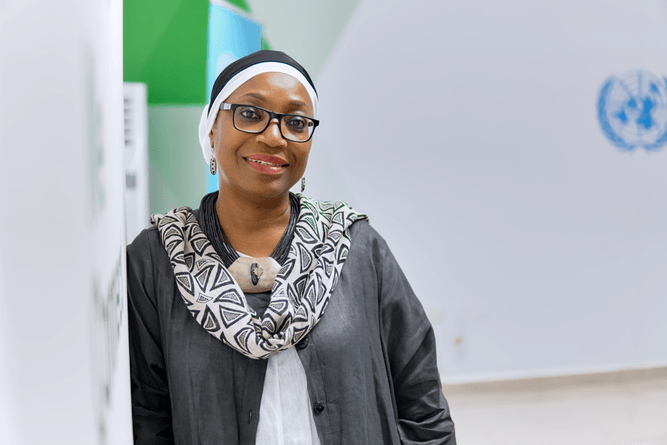
Professor Fatima Denton is the Director of the United Nations University Institute for Natural Resources in Africa (UNU-INRA).
She is an IPCC Vice-Chair for Working Group II and has served as a Coordinating Lead Author and Lead Author across multiple IPCC assessment reports, including the Sixth Assessment Report, the Special Report on Renewable Energy and Climate Change Mitigation, and the Climate and Land Report.
Prior to joining UNU-INRA, she was Director of the Special Initiatives Division and Coordinator of the African Climate Policy Centre at the UN Economic Commission for Africa (UNECA), where she also led the African Minerals Development Centre, a flagship programme designed to advance the Africa Mining Vision.
Professor Denton’s research focuses on climate change adaptation and resilience in Africa’s agricultural, water, and energy sectors, with a strong emphasis on the intersections of adaptation and mitigation, gender and development, and energy poverty. Since 2012, her work has centred on green transition pathways, including green industrialisation, decarbonisation, renewable energy deployment, and the political economy of stranded assets.
She has designed and implemented pioneering programmes, such as the Climate Change Adaptation in Africa (CCAA) initiative, the Young Lawyers’ Programme supporting the African Group of Negotiators, and the Nature Speaks webinar series on stranded assets, green recovery, and climate change.
Professor Denton has led high-level intergovernmental conferences on climate change and sustainable development, including the Climate Change and Development in Africa conference and the African Regional Forum on Sustainable Development. She sits on advisory panels for Future Earth, the Climate Crisis Advisory Group (CCAG), and is a member of Joseph Stiglitz’s Commission on Global Economic Transformation.
She previously held the position as the Prince Claus Chair (2022–2024) at Utrecht University and strives to democratise the Just Transitions debate by securing the voice and participation of those people most affected by transition processes, particularly in Africa. She is also Co-Chair of the second assessment of the Earth Commission.